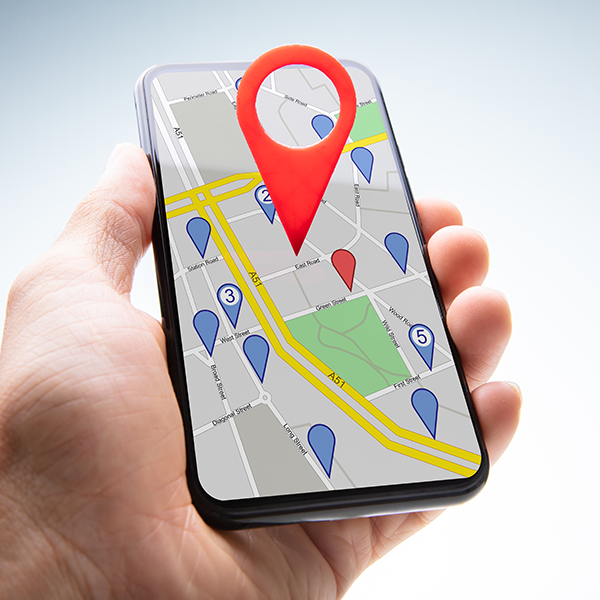Making All Search Local

Three ways to optimize your Internet presence for local search queries
Former U.S. Congressman Tip O'Neill famously coined the phrase, "All politics is local." In much the same way, retail and service companies are quickly coming to realize that all marketing is local. With the recent rise - and soon to be explosion - in GPS/mapping-enabled smart phones as well as the drastic changes in the way Google searches trigger results, local search is rapidly becoming a critical marketing channel. If ignored, it may mean the difference for an organization being visible or invisible to potential customers.
The concept is more evolutionary than revolutionary. Most marketers are savvy enough to claim their listings in Google Places, but most don't do anything beyond that. Instead they opt to focus their efforts on optimizing for general search queries.
However, claiming your listing is only the first step in a comprehensive strategy, since the majority of location-specific searches don't even take place on Google. Many consumers use other outlets such as online yellow pages, local directories and city guides like CitySearch or Yelp, as well as search engines including Yahoo and Bing, to conduct their searches for local businesses. Even if Google were to start dominating local search like they dominate general search queries (and they probably will), their results are heavily influenced by these other local sources.
So before missing the boat entirely, here are three things marketers can do today to optimize their Internet presence for local search queries.
Stake Multiple Claims. Organizations should establish their local listings on all three major engines: Google, Bing and Yahoo! Maps. If a company has more than 10 locations, they can avoid Google's postcard/phone verification process by submitting a spreadsheet for bulk upload. Once the listings are uploaded, the verification process can be initiated by submitting a request at https://bit.ly/GoogleVerification.
Be aware that this still triggers a manual process on Google's side and doesn't result in instantaneous verification. The process can be accelerated by registering your Google Places account using a company-owned email address, as opposed to a Gmail account or other third-party email address.
Beyond search engine map listings, marketers should increase the number of "citations", or mentions of a company name in association with the location-specific phone number and address, on third-party sites. They are crucial in improving the rankings for your map listings. Google puts more weight on citations from trusted resources like Yelp, CitySearch, YellowPages.com and Local.com, but citation authority is industry-specific in many cases.
As an added benefit, top-tier Internet Yellow Pages and city guides get a fair amount of their own traffic and provide excellent outlets for consumer reviews. Google often pulls reviews from third-party sites into their listings and the number of reviews a location receives can impact the 10-pack rankings. Locations with high customer ratings typically see a lift in click-through rates as well.
Illustrate and Amplify. Optimizing for local search is a constant care and feeding process that will require marketers to keep on top of the latest developments by both mainstream and vertical search sites and enhance their listings accordingly. As far as Google Places is concerned, the first step after claiming and verifying your locations is to enhance your profiles by building out the listings with comprehensive information, including pictures and videos.
Companies can even add unique coupons to their listings that provide incentive to customers and helps with tracking. One of the most critical data points is the category that is associated with the business. Choosing the right one helps to ensure that your locations show up for the right search terms. The more complete the profile, the more trusted it becomes by both Google and the consumer. If you still aren't showing up for your priority local search terms, consider advertising in the map results via Google Adwords Local Ad Extensions pay-per-click services or through Google Places Tags for a flat fee of $25 per month. Neither of these advertising options will push your listings into the 10-pack, but they will help your listing get a bit more exposure in the result pages in Google Maps.
Take Chances. There's good reason to, so do experiment with incentivizing consumer actions through mobile applications like Twitter, far beyond simply chasing the latest fad. In July, Biz Stone, co-founder of the popular social media phenomenon boasted that Twitter now supports 800 million search queries per day, more than twice that of Yahoo! and Bing combined. Many of these searches have local intent and can be leveraged for both branding and direct response. And while it is nice to have a large following of engaged users that you can reach directly, Twitter search has the possibility of making the micro-blogging site a useful marketing vehicle independent of your communitybuilding skills.
In the same light, marketers should start considering location- based mobile applications like Foursquare and similar services like Double Dutch, as these services afford companies the opportunity to tap into users' geographic locations. Companies can use that information to serve up offers and information for nearby businesses and points of interest. Some savvy marketers, like those at Tasti D-Lite, are even using social-local apps to power their loyalty programs, providing incentive for both social and financial transactions.
One thing's for sure with local search marketing programs: consistent care, maintenance and optimization will not only increase online traffic, but offline sales at various locations. Make sure that you continually update your listings across the Web if and when any of your location details change. Keeping the information up-to-date and accurate is key to establishing credibility with the search engines. Such practices can be the difference between making noise and making it rain.
About the Author: John Faris is the Online Acquisition Supervisor at Red Door Interactive, an Internet Presence Management firm that helps organizations profit from their Web initiatives. Clients include Petco, Qualcomm, Overstock.com, Rubio's Fresh Mexican Grill and Cricket Communications. He can be reached at jfaris@reddoor.biz.






